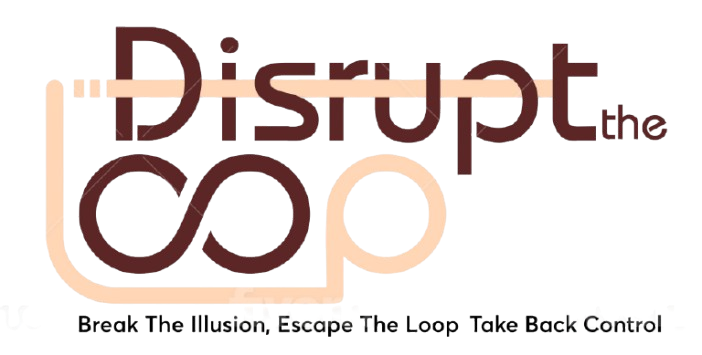Why Do We Ruin Our Own Wins?
Ever notice how, right when you’re about to win, you suddenly do something dumb to mess it all up?
- You finally meet someone who treats you right… and you ghost them.
- You get unexpected money… and immediately blow it on nonsense.
- Your side hustle starts making bank effortlessly… and you lose interest.
You’re not broken. You’re just running on some ancient programming that makes anything too easy feel suspicious.
The Vibe Shift: When Winning Feels Wrong
Picture this: You’re on fire in a game, making all the right moves. Then, out of nowhere, you make a ridiculous mistake that costs you everything.
Or you finally match with someone great—nice, consistent, communicative. And suddenly, you’re bored and looking for the exit.
Or that business you started as a side project starts making real money, but instead of feeling proud, you feel weird—so you sabotage it.
This isn’t just random behavior. Your brain is following a specific formula:
Value = Struggle × Reward
When something comes with zero struggle, your brain literally calculates its value as zero—even if, logically, it’s incredibly valuable.
Your Brain on Easy Mode
This programming is strongest in three key areas:
1. Money That Comes Too Easily
Ever heard the phrase, “Easy come, easy go”? It’s not just a saying—it’s how your brain works.
When money arrives without effort—like lottery winnings, unexpected bonuses, or even birthday cash—your brain flags it as an error that needs correction.
That’s why:
- Lottery winners often end up broke.
- People spend “found money” way faster than hard-earned income.
- You’ve probably blown an unexpected check on something dumb before.
2. Knowledge Without the L’s
Your brain assigns less value to lessons learned easily versus ones learned “the hard way.”
That’s why you’ve probably:
- Ignored good advice, only to regret it later.
- Dismissed a friend’s warning about someone toxic—until you got burned.
- Heard smart money tips but didn’t really take them seriously until you were deep in debt.
It’s not that you didn’t believe the advice—it’s that your brain couldn’t value it properly because it wasn’t attached to struggle.
3. Dating Without Drama
If someone is nice, available, and drama-free, your brain might label them as… boring.
Meanwhile, the person who plays hot and cold? Ignores your texts? Keeps you guessing? They feel exciting.
Why?
Because your brain equates struggle with value. More struggle = more worth.
Where This Mental Code Comes From
This isn’t just random—it’s deeply wired into us through:
- Survival instincts – For most of history, the best things required effort to obtain.
- Religious teachings – Think “By the sweat of your brow, you shall eat.”
- Cultural programming – Every movie, book, and motivational speech preaches “grinding,” “hustling,” and “no pain, no gain.”
Even if you consciously reject these ideas, they’re still running in your brain’s background—like outdated software that needs an upgrade.
Real-Life Examples of This Mental Glitch
The Casino Effect
Dr. Joshua Garfunkel studied people who lost serious money gambling. He noticed something strange:
When the dealer showed a high-risk card, the players’ bodies reacted instantly:
- Stomach clenched
- Blood pressure spiked
- Their brain flooded with “I’m gonna lose” thoughts
This panic made them play badly, which caused them to lose, which confirmed their anxiety.
But here’s the wildest part:
Even when they won, if they didn’t feel enough stress during the process, their brains actually fought against keeping the money—because winning without struggle didn’t feel earned.
The Dating App Paradox
This explains why:
- The person who leaves you on read = the one you’re obsessed with.
- The person who’s always there for you = the one you “just don’t feel it” for.
- The situationship with constant ups and downs = feels way more exciting than a stable, healthy relationship.
Your brain literally calculates relationship value based on struggle. The more struggle, the more it must be “worth.”
The Easy Knowledge Problem
Ever ignored a warning, only to later say, “I should’ve listened”?
- A friend told you to stay away from that toxic person, but you didn’t believe them—until you got burned.
- You heard about saving money young, but it didn’t feel real until you were drowning in credit card debt.
- You knew eating junk food was bad, but only really cared once health issues popped up.
Your brain resists valuing knowledge that comes too easily—which is why so many people insist on learning lessons the hard way.
How to Hack This Mental Code
1. Call It Out
Next time you feel weird about something being too easy, pause and say:
“That’s my ‘value through struggle’ programming activating.”
Just naming the pattern weakens its grip.
2. Redefine the Challenge
Instead of thinking, “This is too easy, I must be missing something,” shift to:
👉 “The real challenge isn’t getting this—it’s allowing myself to keep it without sabotaging it.”
3. Create Value in What Happens Next
If something comes easily, you don’t have to destroy it to make it feel earned. Instead:
- If money comes easily, create meaning through how you invest or use it.
- If a relationship feels effortless, create meaning through how you grow together.
- If a lesson is learned easily, create meaning by applying it immediately.
Value doesn’t have to come from struggle—it can come from what you do next.
4. Start With Small Wins
If big wins without struggle freak you out, start small:
- Let yourself enjoy an easy opportunity without guilt.
- Accept compliments without downplaying them.
- Let money come without feeling the need to balance it with struggle.
This builds up your tolerance for ease over time.
5. Find Your “Struggle Sweet Spot”
The goal isn’t to eliminate all challenge—because that would feel empty.
But it’s also not to maximize suffering.
The sweet spot? Enough challenge to keep you engaged, but not so much that it wrecks you.
The Most Revolutionary Flex: Winning Without Struggle
In a world that glorifies grinding, hustling, and suffering, the most powerful move might be allowing yourself to win easily—and keep those wins.
What if:
- You didn’t have to suffer for every good thing?
- Making money without stress wasn’t cheating, but actually a sign of mastery?
- Dating someone who’s good to you wasn’t boring—but the healthiest flex of all?
The most radical move might be looking at something that came easily and saying:
👉 “I deserve this.”
And actually meaning it.

